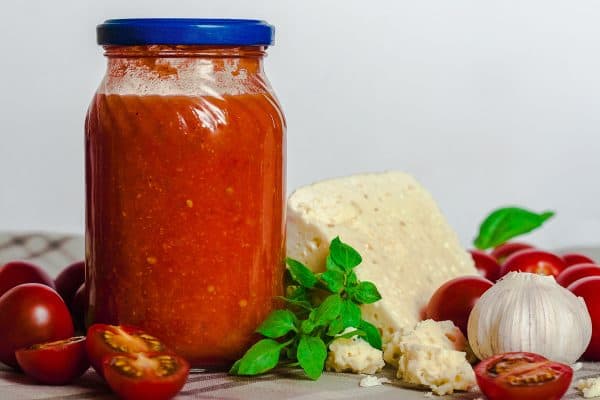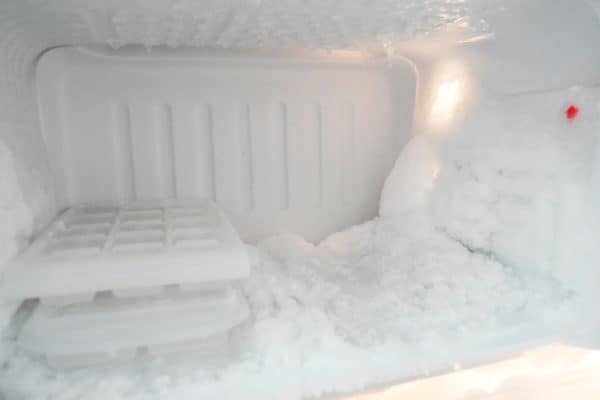If you cook using red wine, you may have experienced freezing them into cubes on several occasions as it may come in handy when cooking stews, certain soups, sauces, or gravy. Thinking along the same line, it would be neat if alcohol can be kept in cubes. You just need to open your freezer, take the cubes out, and have a quick fix that is cool and refreshing. So, as always, we looked for answers, and below is an account of what we found out.
The alcohol that we normally drink is a combination of water and alcohol. So, technically you can place them in the freezer and keep them in cubes. But one thing to consider is the percentage of alcohol present or its ‘proof’. Generally, the lower the alcohol content, the easier it can freeze. Alcohol below 15 percent alcohol by volume (ABV) can freeze well but higher ones may only turn slushy when placed in the freezer. Alcohol with 40 percent proof or more generally will not freeze in regular home freezers.
Before we go further, let's define some standard terms used in alcohol language—alcohol by volume or 'ABV' and 'proof'. Both define how much alcohol is included in the drink but expressed differently. Alcohol by volume is the amount of ethanol present per 100 milliliters of solution. If you multiply the ABV twice, the value you get is the 'proof'. Both can be used interchangeably, just make sure to remember how each one is derived.
NOTE: WE MAY GET A COMMISSION IF YOU DECIDE TO MAKE A PURCHASE THROUGH THESE LINKS. THERE'S ADDITIONAL NO COST TO YOU. CHECK THE BOTTOM OF THE PAGE FOR MORE INFORMATION.
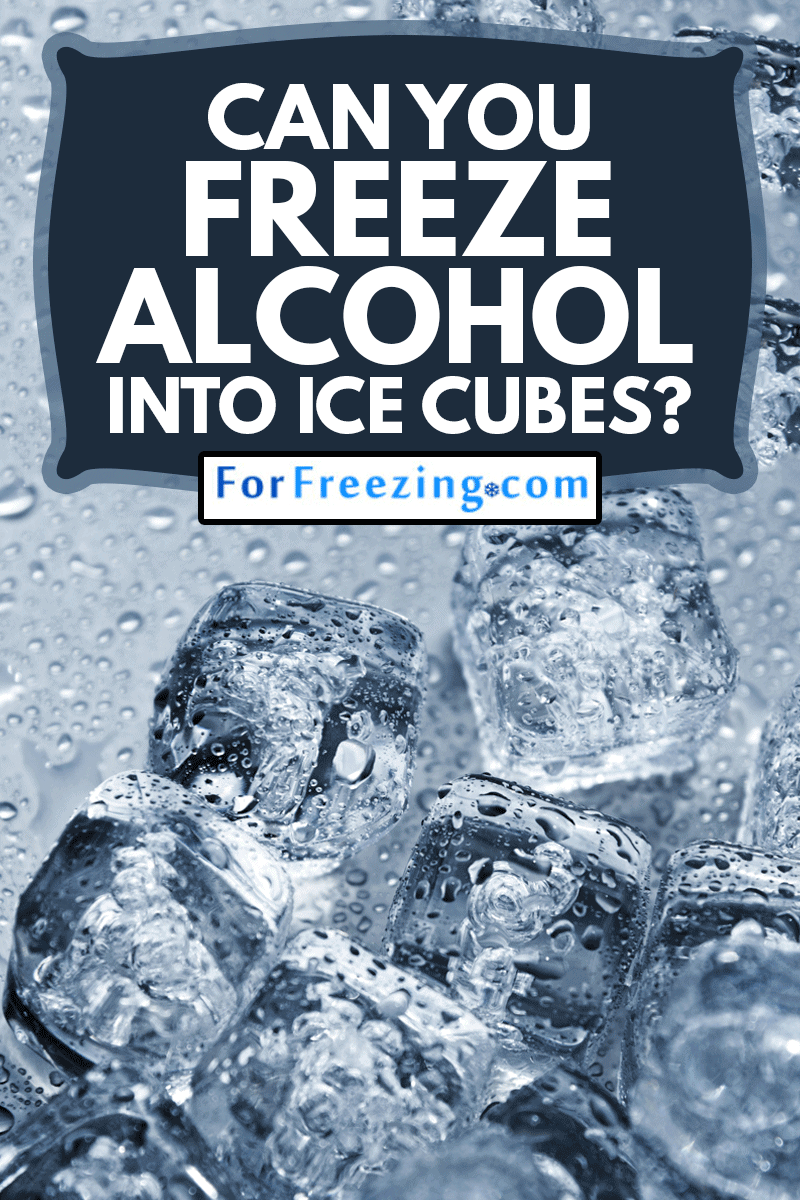
Why is Alcohol Challenging to Freeze?
Alcohol in its purest form has a very low freezing point of -173.2⁰F. So, it may be quite impossible to freeze alcohol using home freezers, as the lowest that they can go is only at -7.6⁰F. But common practice tells us that, on occasions, you can put liquors in the freezer. The less alcohol in the beverage means that there is more water in it, ergo, not as lower freezing point as the pure one. Additives and flavoring can also be a component in some liquors which also vary the freezing point.
But more than the dilution, volatiles also determine the palatability of freezing alcohol. For example, whiskey versus vodka. People who are whiskey drinkers savor the taste of the beverage—they enjoy the aroma first before they take a sip or gulp. But when you freeze whiskey, the aroma disappears. For vodka, which has fewer volatiles, freezing may even improve the experience and taste as the texture may alter for the better.
Freezing, therefore, has a trade-off; it can improve the taste and texture, but it can mute the aroma and the flavors. This is all not unwanted though. Some beer manufacturers have capitalized on this information. They encourage you to put them in the freezer right before you drink them. They know freezing helps to mute all the unwanted flavors. This gives them the market and demand while you get to drink the beer as projected in the advertisement.
What alcohol can go into the freezer?
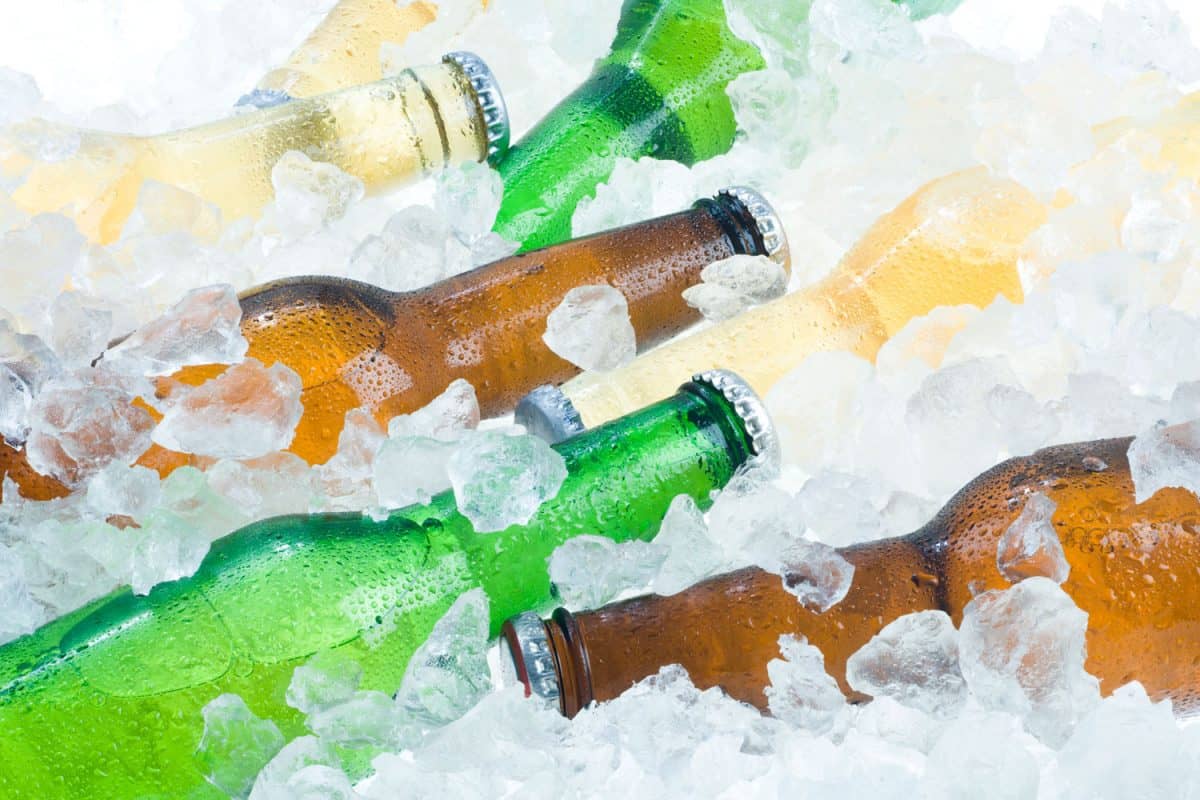
Any type of alcohol can go into the freezer. However, not all will freeze. The general rule is that the higher the alcohol content, the less likely it is to solidify when placed in the freezer.
The number to remember is 15. Liquors with lower than 15 percent alcohol content will freeze solid if left in the freezer for long periods while 40 proof or higher, will generally retain their liquid form even when placed below freezing temperatures. Drinks containing alcohol in between 15 to 40, on occasion, can turn slushy when placed in the freezer but do not turn solid even if kept for longer periods.
Beer generally has 3–10% ABV and most wines are in the 8–14% ABV range. Fortified wines would have a higher ABV than most wines as distilled spirits have been added. It is recommended that you only place beer in the freezer for a quick chill while a bottle of wine is preferably placed in the freezer for no longer than two hours.
Other examples of alcohols based on proofs are listed below:
- 40 proof alcohol (20% ABV) - fortified wines like Port, Madeira, Vermouth, Sherry, Marsala
- 64 proof alcohol (32% ABV) - some lower ABV gins and brandy,
- 80 proof alcohol (40% ABV) - cognac, whiskey, rum, tequila, vodka
But if you dilute your alcohol, irrespective of its original proof, then definitely you can enjoy them frozen cold.
Can you Freeze Alcohol into Popsicles?
Definitely; alcohol incorporated into concoctions can be frozen into popsicles. Clear spirits like gin, tequila, or vodka may work well.
To make these popsicles, you need to mix your chosen spirit and other liquid such as lemonade, sparkling water, or cola. You can also base your combination on your favorite mixes: Rum and Cola, Gin and Tonic, Cosmopolitan, Bloody Mary, Gimlet, Daquiri, Black Russian, and many others. You can also add other solids or fruits for a more defined texture. The general dilution is 1 part spirit and 5 parts of the other liquid. Once done, you can then transfer the concoction into your chosen molds, then freeze for a few hours.
You can play with the dilution depending on how fast you want it to freeze or how alcoholic you prefer the cubes. But remember the magic number—if you want it to turn into a block, keep the content to less than 15 percent. Otherwise, no matter how long you place them in the freezer, they will never turn solid.
Does freezing alcohol make it stronger?
For lower proof alcohol, freezing the alcoholic beverage tends to squeeze the alcohol content from the drink as water freezes faster. Although there was no change in the actual content, you may taste a slightly stronger alcohol. So, to maintain the proof, you also need to consume the ice to dilute the alcohol back to its original content.
Practically no change will be noted for higher proof alcohol as they tend to remain in full liquid state even in sub-zero environment. You still get to enjoy the full goodness of the alcohol but colder, which may be nice on a warm day to loosen up or on a hectic day to relax the nerves.
How long can you keep alcohol in the freezer?
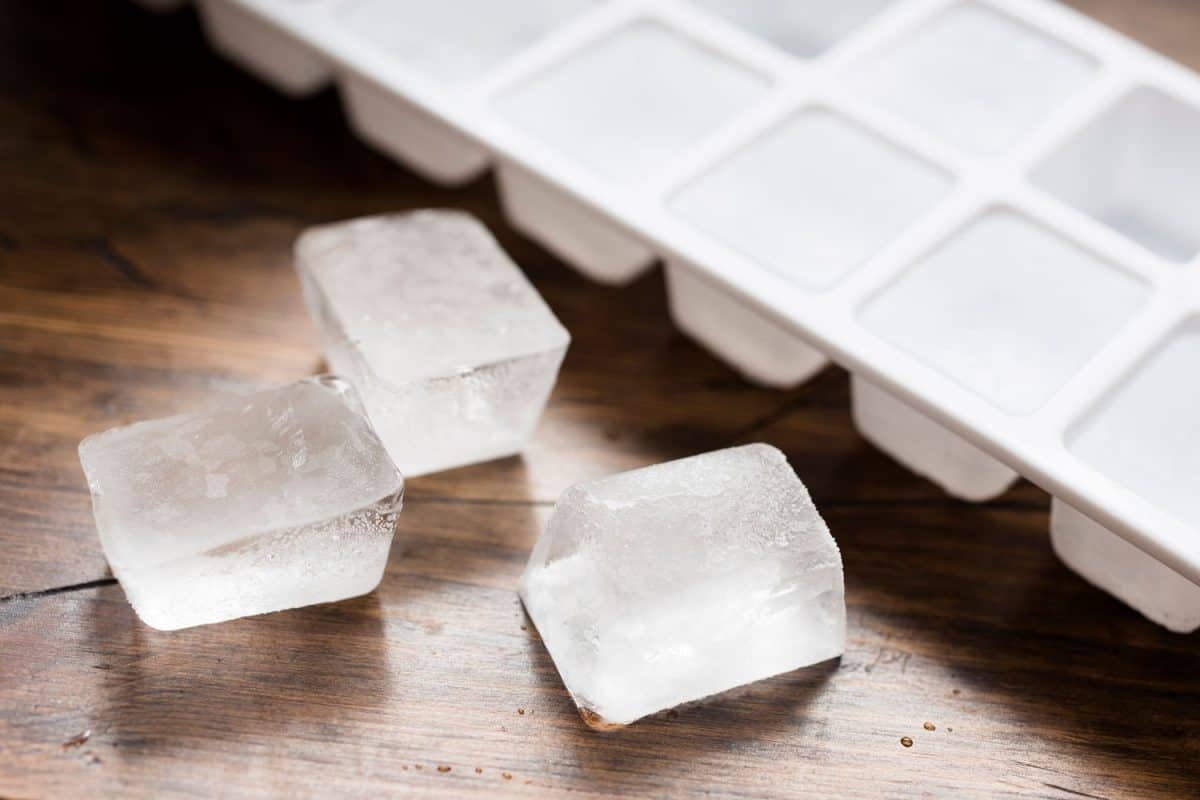
It is generally not recommended to keep them long in the freezer especially for barrel-aged beverages like wine or whiskey. Popping them in the freezer may make it more palatable to the taste especially when you prefer them ice cold. But don't store them in the freezer indefinitely.
But in case that you forget, low-proof alcohol tends to solidify fast. So, keeping them long in the freezer can only result in an exploded can or broken bottle. Higher proof alcohol may be kept in the freezer over an indefinite period as the freezer temperature will not solidify it. However, keeping them far too long can change the consistency. One month may be an optimal duration to store them in the freezer.
How do you defrost alcohol?
Not all alcohol will need defrosting when placed in the freezer as not all will freeze.
But in case you do have a frozen alcohol drink in your freezer, you can just thaw it by taking it out and let it melt at room temperature. Or place it in the fridge while thawing. Either way, it won’t be a problem since you have it inside a sealed container.
Drinking it frozen will also not be bad as the components are not altered, it may just taste slightly different since you get the components slightly separated.
Take Home Message
Unless you have a freezer that can go below -40⁰F, then you can freeze any alcohol into ice cubes. But for most home freezers, it is quite unlikely as alcohol has a very low freezing point. The ultimate guide of how well it can freeze is the proof, which is indicated in the bottle.
Alcohol 40 proof and above will not turn solid when placed as pure in the freezer, but mixing them into concoctions can get the job done. You can enjoy them as cubes or as popsicles!

